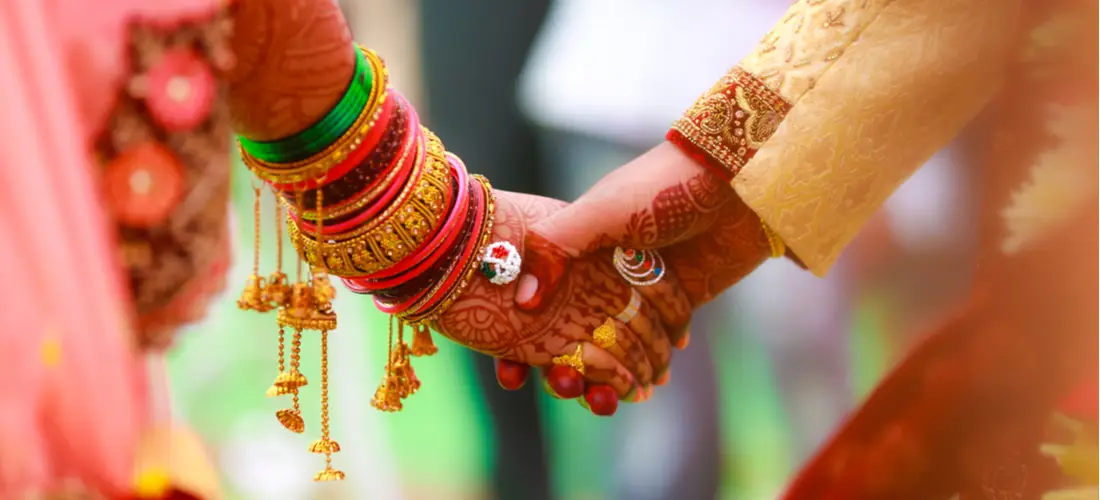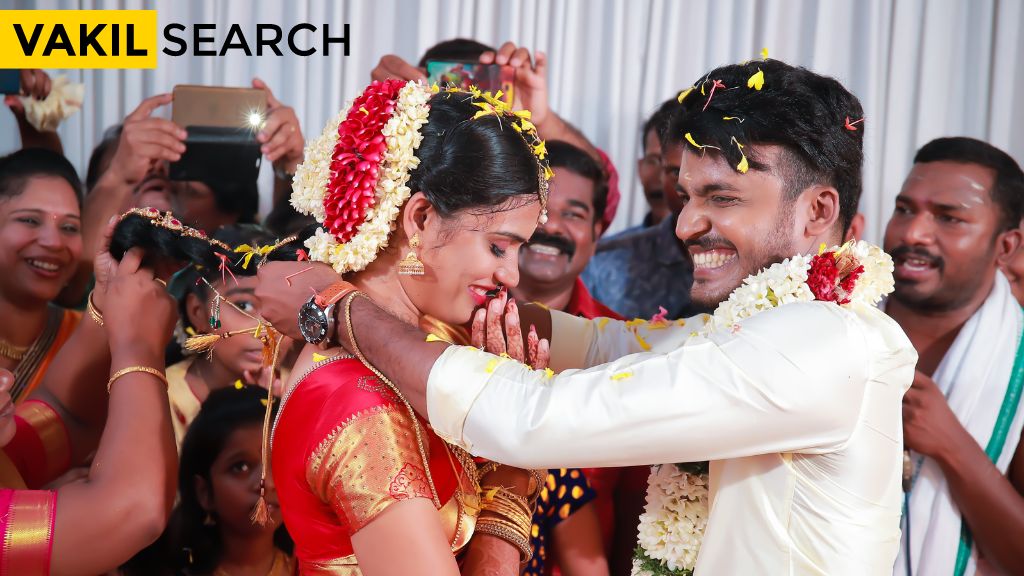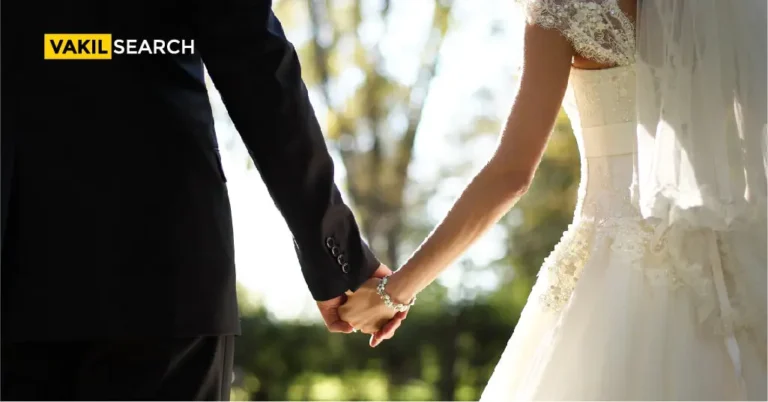Read this blog to know everything about applying for a marriage certificate in Karnataka.
Getting a marriage certificate is not as simple as the movies make it look. It takes weeks of planning and waiting on the approval of documents. India is a diverse country. It only makes sense that the marriage laws will be myriad as well.
Indian marriage laws are based on different religions because marriage is still grounded in faith in most parts. But the legal proceedings are very similar with some differences.
Obtaining a marriage certificate does not vary by state or city but by religion. Hence, we will discuss the different Marriage Acts. All of them apply to people of relevant religions in Karnataka – https://igr.karnataka.gov.in/new-page/Registration or anywhere.
What is a Marriage Certificate?
A marriage certificate, or a marriage license, is legal proof of the marital relationship between two people. In 2006, the Supreme Court mandated legal marriage between two people across the country. Until then, a social wedding and photos from said wedding used to be adequate proof of marriage between two people. We need an official document that proves that two people are married. This document is valid universally.
Need for a Marriage Certificate
- If you want a spouse visa at any point in your life
- If you need a residence permit in a different country
- If you want to buy joint property
- If you need a home loan or any joint loan
- For privileged communication to reserve the right to not testify against your spouse in criminal cases, Section 122 of the Indian Evidence Act lists exceptions that can override this privilege.
Overall, legal matters are much more straightforward if two people are officially married, especially if their plans involve settling abroad or even visiting for a long time.
Diverse Marriage Acts in India
India is diverse, as Indian citizens belong to many different religions. Since the sanctity of marriage is rooted in faith, India has other marital laws based on different faiths. There are five major marriage laws in India.
1] The Hindu Marriage Act (1955)
This applies to people born to Hindu, Buddhist, Jain, or Sikh parents. It also applies to people who are not or have not converted to Islam, Christianity, Judaism, or Zoroastrianism.
- The bride must be at least 18 years and the groom at least 21 years of age.
- Neither of them should have an active marriage. They both need to be single/widowed/divorced.
- They must not be related by blood, even as distant relatives.
2] The Muslim Marriage Act (1875)
This Act is governed by the Muslim Law, independent of the Indian Majority Act. It mandates a proposal and acceptance in sound minds between the couple, who must be Muslim.
- Muslim Marriage Act enables the marriage of a minor with the consent of a guardian.
- The Muslim Marriage Act prohibits only women from having a second simultaneous husband and enables Muslim to have up to four wives consecutively.
- It also prohibits marriage if the woman is pregnant or if she was divorced by the same man before.
- They must not be closely related by blood.
3] The Christian Marriage Act (1872)
A Christian marriage is very different. The officiator needs to be at least one of the following:
- A person with an episcopal ordination
- Clergy of the Church of Scotland
- A licensed Minister under the Christian Marriage Act
- A marriage registrar, as per Section 7 of the Act
- A person authorised to grant a marriage certificate under Section 9 of the Act
Catholic and Protestant marriage laws are similar since both can marry each other, but traditionally, the woman’s customs get merged into that of the husband’s.
4] The Parsi Marriage and Divorce Act (1936)
The legal age of consent is similar to the Hindu Marriage Act, but there is a minority legal guardian clause. No marriage between blood relations is allowed. Remarriage for either gender is prohibited without official divorce when the existing spouse is still alive.
5] Special Marriage Act (1954)
This Act enables intercaste and interfaith marriages in and outside the country.
- Both the parties need to be single or divorced/widowed if they were married before.
- The groom must be at least 21 and the bride at least 18 years of age.
- Illegitimate or legitimate blood relations are prohibited under the Act. The bride and groom cannot be related by blood in any form.
- Relation by adoption is also prohibited. A person adopted into a family cannot marry within the family.
This law extended to Indian citizens of Jammu and Kashmir under Section 370 of the IPC.
Documents Needed for Marriage Certificate
Several documents are mandatory for an official marriage in India under the Marriage Acts. The common ones are:
Proof of Age and Citizenship
Preferred documents:
- Aadhar Card
- PAN Card
- Birth Certificate
- Voter ID
- Ration Card
Acceptable documents:
- Matriculation certificate
- Other school documents
- College ID
- Driving license
- Passport
Proof of Address
Preferred documents:
- Aadhar Card
- Voter ID
- Ration Card
- Passport
- Bank Passbook
- Phone or Electricity Bill
Acceptable documents:
- Driving license
- School or College ID
- Rent agreement proof.
Any one proof of citizenship and evidence of address for each person will suffice. Although, it is good to carry at least two documents if none of the preferred documents is available.
Other Requirements
- 5 passport size photographs of each of the two parties
- Witnesses
- Copy of proof of death of the previous spouse in case of widowed party or divorce papers in case of divorced parties
Documents for the Witnesses
The witnesses, too, need to prove their citizenship, age, and address.
- The Muslim Marriage Act accepts male witnesses only
- The Special Marriage Act needs three witnesses of any gender
- The other Acts need 2 witnesses
- The witnesses can be acquaintances to either or both parties
- The witnesses need to be legal adults
- The witnesses must furnish two copies of age, address, and citizenship
- The witnesses must furnish 3 passport size photographs each
One can initiate an application for a marriage certificate offline, through court, or online. A nominal fee of INR 100-150 is required depending on the Marriage Act in concern. However, hiring an agent to fast-track the procedure and ensure smooth proceedings is better. The court needs a notice of one month in case of court marriage. Marriage registration can be initiated at any time. And the marriage certificate can be obtained within a month of application.
Read more,










